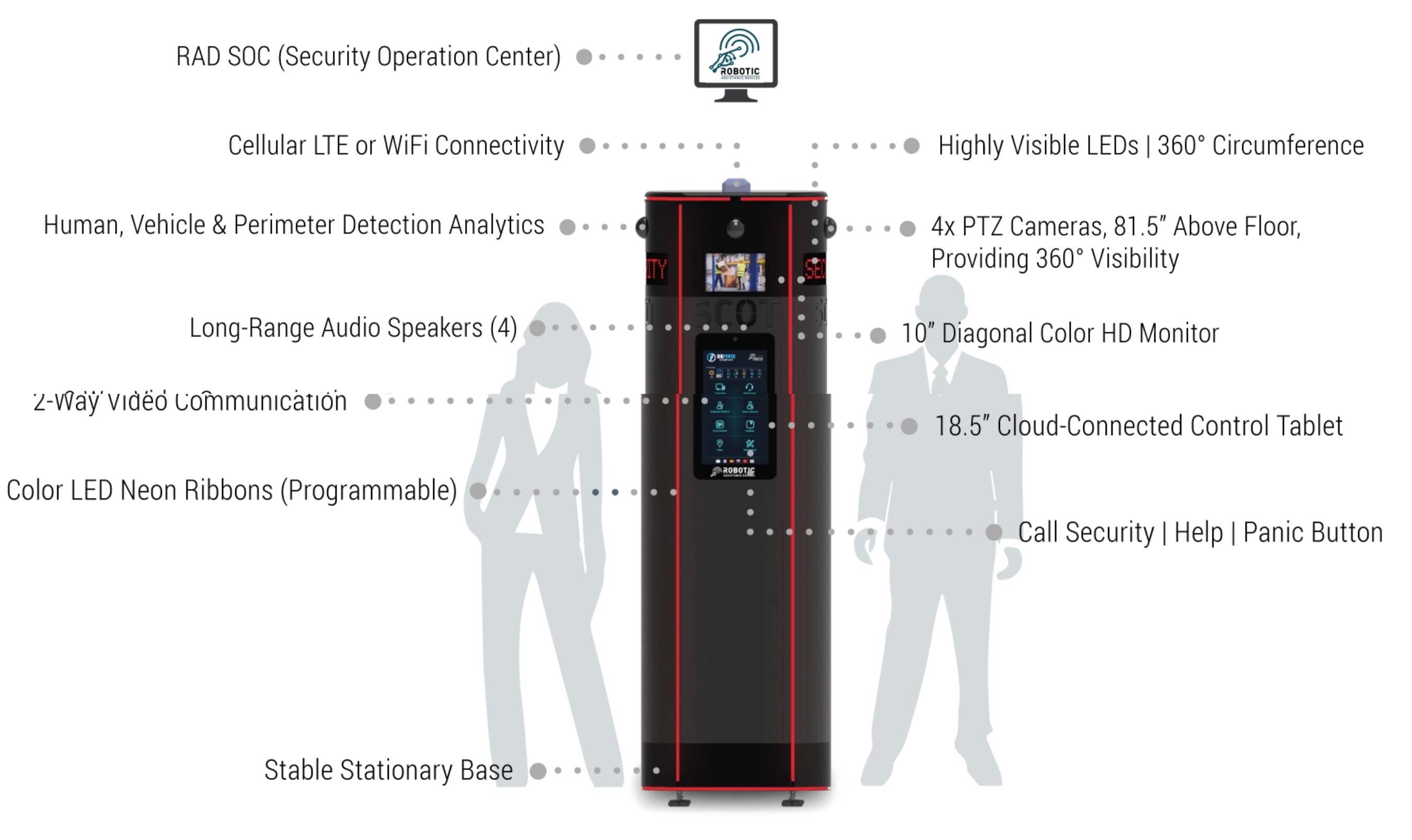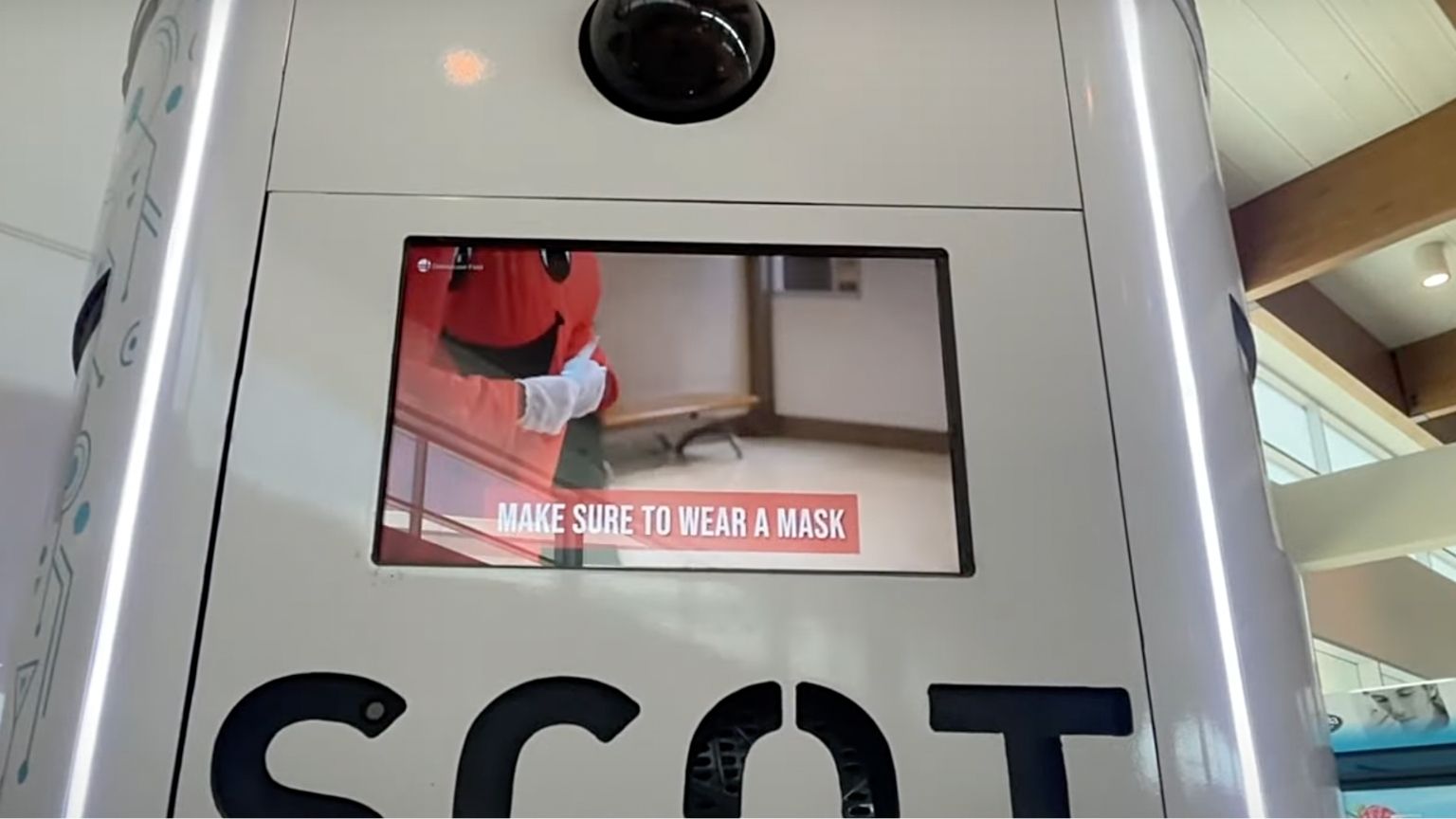Seven-foot tall robots at the Dallas Love Field Airport are scanning for unmasked travelers and cars that have been parked for too long. The technology raises privacy concerns among privacy advocates.
The robots, dubbed SCOT (security control observation towers), have been placed at two locations; one near security checkpoints and the other near baggage claim. The aim is to determine if robotic systems can assist travelers to get around the airport and warn those who are breaking the rules.
The robots have a touchscreen people can use to find directions and other information. They also have technology that can detect if someone is wearing a mask and warn passengers who have been parked for too long, a capability enabled by a license plate reader.

If someone is breaking the rules, SCOT will give a verbal warning that increases in severity and volume if someone does not comply. The machine can call airport security and the police.
A spokesperson for the airport told the Dallas Morning News: “The units currently make scheduled and detection-based announcements directed toward our passengers and visitors. Some of these focus on reducing vehicular congestion at our curb using license plate recognition and increasing federal mask compliance using facial recognition technology while others provide standard information.”
Such technology raises privacy concerns among privacy advocates.
“It is concerning that an airport has installed a new system of artificial intelligence,” said Adam Schwartz, a lawyer at the privacy rights organization Electronic Frontier Foundation. “It raises a lot of questions about what that technology is doing.”













